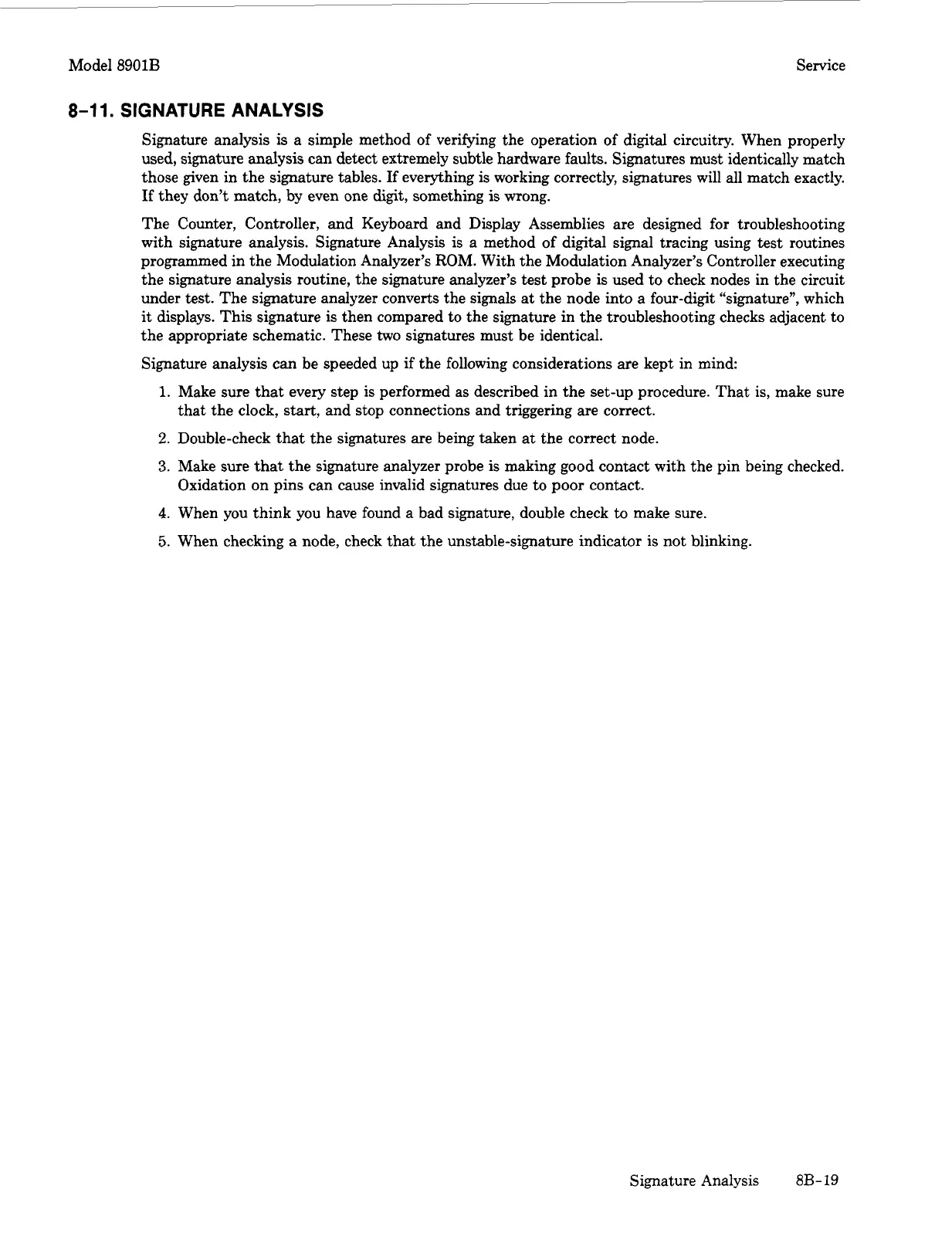Model
8901B
Service
8-1
1.
SIGNATURE
ANALYSIS
Signature analysis
is
a simple method of verifying the operation of digital circuitry. When properly
used, signature analysis can detect extremely subtle hardware faults. Signatures must identically match
those given in the signature tables.
If
everything
is
working correctly, signatures will all match exactly.
If
they don’t match, by even one digit, something
is
wrong.
The Counter, Controller, and Keyboard and Display Assemblies are designed for troubleshooting
with signature analysis. Signature Analysis is a method of digital signal tracing using test routines
programmed in the Modulation Analyzer’s ROM. With the Modulation Analyzer’s Controller executing
the signature analysis routine, the signature analyzer’s test probe
is
used to check nodes in the circuit
under test. The signature analyzer converts the signals at the node into a four-digit “signature”, which
it
displays. This signature
is
then compared to the signature in the troubleshooting checks adjacent to
the appropriate schematic. These
two
signatures must be identical.
Signature analysis
can
be speeded
up
if the following considerations are kept in mind
1.
Make sure that every step is performed as described in the set-up procedure. That is, make sure
that the clock, start, and stop connections and triggering are correct.
2.
Double-check that the signatures are being taken at the correct node.
3.
Make sure that the signature analyzer probe is making
good
contact with the pin being checked.
Oxidation on pins can cause invalid signatures due to poor contact.
4.
When you think you have found a bad signature, double check
to
make sure.
5.
When checking a node, check that the unstable-signature indicator
is
not blinking.
Signature Analysis
8B-19
